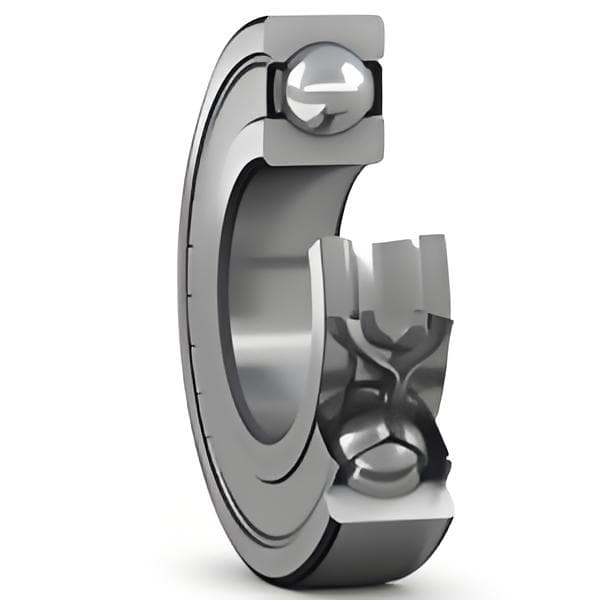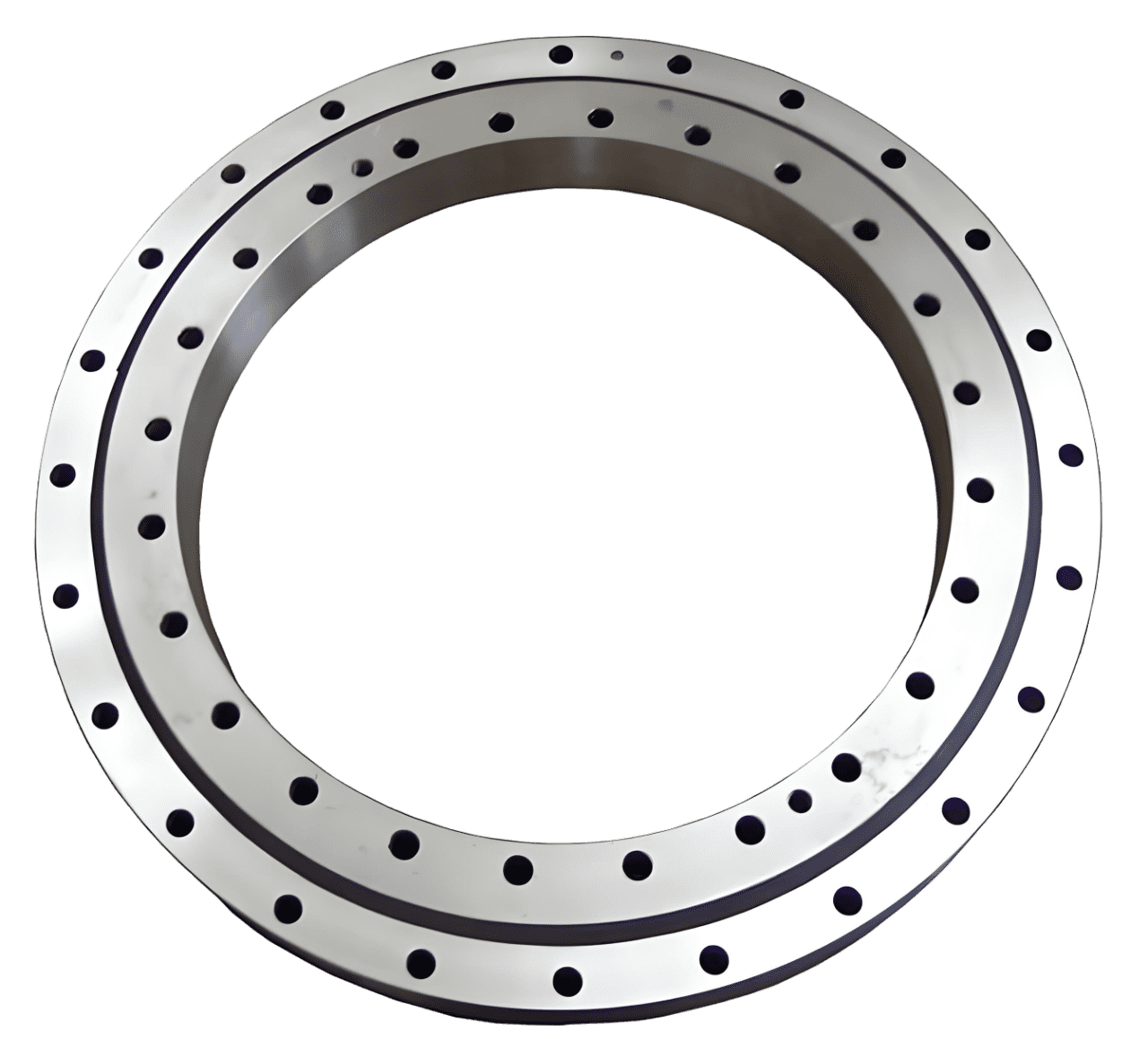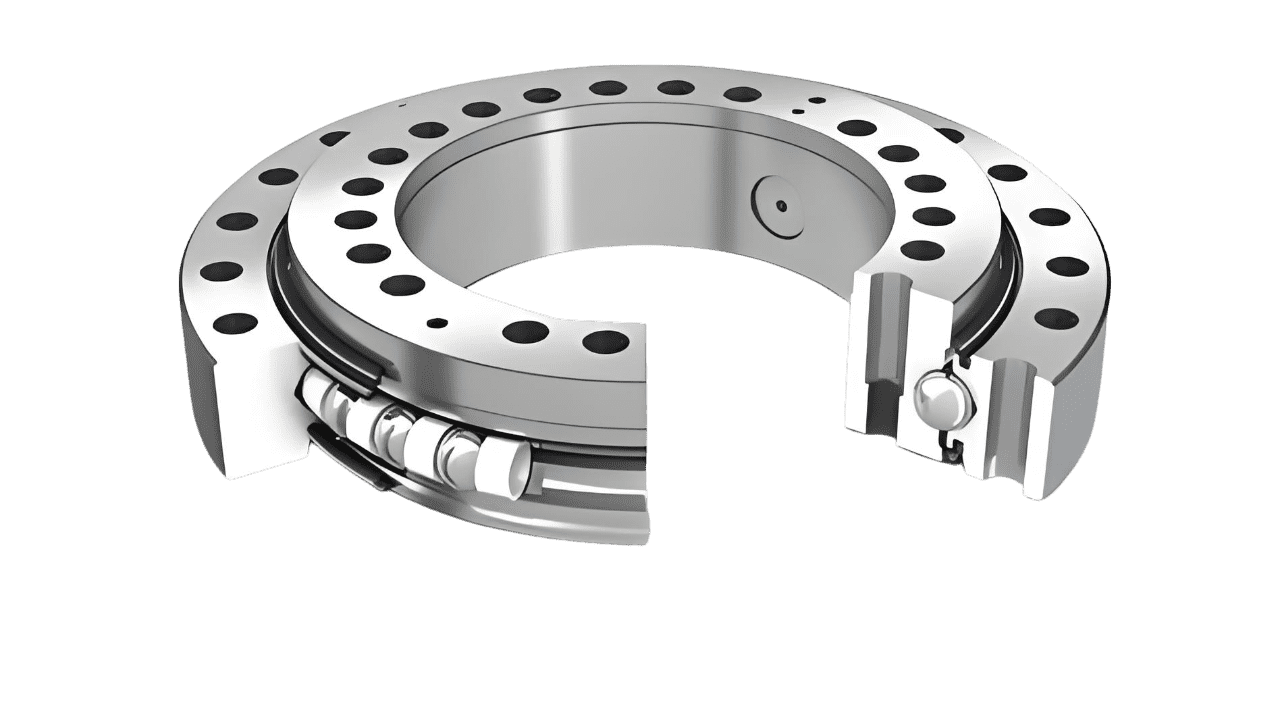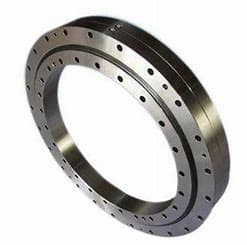Airframe Control Ball Bearings Vs Radial Ball Bearings in Aerospace
In the intricate realm of aerospace, ball bearings serve a pivotal role, ensuring precision, efficiency, and durability in various mechanical...

High temperature bearings are important in industries like automotive, steel production, and energy. They can handle extreme heat and still work well.
Extreme heat can damage bearings in several ways. It causes oxidation, where metal reacts with oxygen, forming rust that increases friction and wear. Heat also breaks down lubricants, making them less effective and causing more friction.
This can result in accelerated wear or even cause the bearing to seize. High temperatures can also weaken the bearing material, causing it to crack or fail. These problems shorten the bearing's lifespan and reduce its performance, making high temperature bearings necessary in hot environments.
The purpose of this blog is to help readers understand the criteria for selecting the best grease. It focuses on high temperature bearings and how to choose the right grease for optimal performance. This ensures the longevity and efficiency of equipment operating in high-heat environments.
High temperature bearings are made to work in temperatures above 250°F (120°C). Some special bearings can handle even higher temperatures, over 500°F (260°C). They are designed to remain reliable and efficient in extreme heat. This helps equipment last longer and reduces the need for frequent maintenance.
High temperature bearings are used in several heat-intensive applications, including:
High temperature bearings face several challenges:
Selecting the correct grease for the application’s temperature range is crucial to ensure bearings operate effectively. If the grease is unable to withstand the heat, it will degrade and fail to provide proper lubrication.
This can cause increased friction, wear, and even bearing failure. Selecting the appropriate grease ensures the bearings operate efficiently and minimizes maintenance requirements. It also extends the equipment's life in high-heat conditions.
For high temperature bearings, it’s important to use the right grease. Lithium complex grease works well up to 250°C, while PFPE-based greases can handle temperatures up to 300°C or more. Using the right grease helps reduce wear, friction, and helps the bearings last longer in high-heat environments.
Compare mineral-based vs. synthetic oils:
List common thickeners:
Oxidation inhibitors, anti-corrosion agents, and extreme pressure (EP) additives are important for keeping high temperature bearings working well:
When choosing grease for high temperature bearings, it's important to consider the following:
Different types of grease should never be combined. They are made from different oils and thickeners, and mixing them can cause the grease to stop working properly. This can lead to more friction, faster wear, and even bearing failure. Always use the same type of grease or check if the new grease is safe to use with the old one.
Lithium Complex Grease is commonly used in many industries because it works well and is cost-effective. It can handle temperatures up to 250°C, making it good for moderate to high heat applications. This grease is often used in cars, machines, and bearings that need reliable lubrication in hot conditions.
Polyurea Grease is known for its excellent oxidative stability, meaning it resists breaking down even at high temperatures. This makes it ideal for continuous high-temperature operations, where it can provide long-lasting lubrication without degrading. It is commonly used in industries that require consistent performance in hot conditions. This includes applications in motors, fans, and high-speed machinery.
Calcium sulfonate complex grease is ideal for high temperatures because of its high dropping point. This property ensures it doesn't melt easily, providing reliable lubrication in extreme conditions. It also protects against corrosion, stopping rust and damage to metal surfaces. Plus, it has extreme pressure (EP) properties, which help reduce wear and friction under heavy loads.
This grease is perfect for moist environments, like steam turbines or outdoor equipment, where it’s exposed to water or harsh weather. Its ability to resist rust and handle pressure makes it ideal for these conditions.
PFPE-based grease is a high-quality grease that resists oxidation and chemical damage. This makes it perfect for use in tough conditions. It lasts longer in extreme heat and harsh environments.
It is commonly used in aerospace and chemical industries, where it can handle very high temperatures. Moreover, it is resistant to strong chemicals, ensuring that equipment operates efficiently and reliably.
To measure the actual temperature, you can use sensors. Contact sensors touch the equipment to provide accurate readings. Non-contact sensors, such as infrared thermometers, can measure temperature from a distance. This helps make sure the bearings and grease stay within their safe temperature range, avoiding damage.
Over-lubrication can cause problems by trapping excess grease inside the bearing. This can lead to thermal buildup, as the extra grease can overheat and break down, leading to higher temperatures.
It can also attract contamination, such as dirt or dust, which gets trapped in the thick grease, leading to wear and damage. Using the correct amount of grease is crucial to ensure the bearings operate smoothly and avoid potential problems.
To set the right relubrication intervals, balance how often you add grease with how long it lasts. Too much grease can waste money and increase maintenance, while too little can cause damage. By finding the right timing, you can lower costs, reduce downtime, and keep bearings working well.
Always test compatibility before switching greases. Mixing different types of grease can cause them to break down or fail to perform correctly. This may lead to poor performance or even damage to the equipment. To prevent any issues, it's essential to verify that the new grease is compatible with the old one before use.
Steel mill bearings need grease that can handle heavy loads and resist water. Calcium sulfonate grease is a great choice because it protects against rust and works well in hot, moist conditions. This helps the bearings last longer and work reliably.
Automotive conveyor systems require high-temperature grease that can handle the heat from the machines while maintaining its performance. The grease must have oxidative stability to prevent it from breaking down. This is crucial to withstand high temperatures and exposure to oxygen. This helps ensure smooth operation, reduces maintenance, and extends the life of the system.
In industrial ovens, you need non-melting grease because the heat is high. Regular grease can melt and stop working, which can damage equipment. PFPE-based and clay-thickened greases are perfect for this because they can handle high temperatures without melting. They keep the bearings working smoothly and last longer in hot conditions.
High-quality grease extends the lifespan of bearings, reducing the need for frequent replacements. It protects against heat, wear, and rust, which means less maintenance and fewer repairs. This reduces downtime and stops early bearing failure, helping your equipment last longer.
Optimal lubrication is key to minimizing wear and tear under extreme conditions. The right grease reduces friction, keeping parts smooth and preventing damage from heat, pressure, or contaminants.
It forms a protective layer on the bearing surfaces, enhancing their durability. This helps them last longer, even in harsh environments such as high temperatures or heavy loads. By maintaining proper lubrication, you can keep equipment running smoothly and avoid costly repairs.
Proper lubrication plays a critical role in reducing downtime and keeping equipment running smoothly. Ensuring that bearings and machinery are well-lubricated minimizes friction and reduces wear.
This helps lower the risk of failure. This leads to fewer breakdowns, less maintenance, and less need for repairs. As a result, machines run more efficiently, which helps maintain productivity and avoid costly downtime.
MOLYKOTE® 41 Extreme High Temperature Bearing Grease is made with carbon black thickener. This helps it remain stable and effective in hot conditions. It can withstand temperatures up to 290°C, making it ideal for machines operating in high-heat environments. This ensures reliable lubrication in demanding conditions.
Mobil SHC™ PF 462 is a PFPE-based grease known for its exceptional thermal and oxidative stability. It can handle temperatures up to 500°F (268°C), making it ideal for extreme heat conditions. This grease ensures reliable performance in high temperature applications by providing long-lasting lubrication. It also protects equipment from wear and breakdown.
Shell Gadus S5 T460 is a calcium sulfonate complex grease that works well in wet and corrosive environments. It protects against rust and water, making it ideal for environments like marine or steel industries. In these areas, equipment is often exposed to moisture and harsh conditions. This grease ensures the smooth operation of machines and extends their lifespan.
Klüber STABURAGS NBU 30 is a high-performance grease that is excellent for high-speed applications. It offers great thermal stability, meaning it can handle high temperatures without losing its effectiveness. This makes it ideal for machinery that operates at high speeds. It requires reliable lubrication to perform smoothly and last longer.
High-temperature grease is important for keeping bearings reliable in tough conditions. It helps reduce friction and wear at high temperatures, preventing overheating and rust. This makes bearings last longer and work smoothly, lowering the chances of failure and reducing maintenance costs.
When choosing high-temperature grease, make sure to consider the temperature range, base oil, thickener, and additives. The temperature range ensures it can handle the heat, while the base oil helps it lubricate properly. The thickener keeps it stable, and the additives improve things like rust protection. Picking the right grease based on these factors helps bearings work well and last longer.
For the best results, talk to experts or manufacturers for advice on the right grease. They can help you pick the best grease based on your equipment, conditions, and temperature needs. This will help your bearings work better and last longer.

In the intricate realm of aerospace, ball bearings serve a pivotal role, ensuring precision, efficiency, and durability in various mechanical...

Coated bearings are standard bearings. They have a layer of special material on them that makes their surface better. This treatment helps them work...

Super Precision angular contact ball bearings are at the heart of many high-performance machines and equipment. They are designed to handle high...